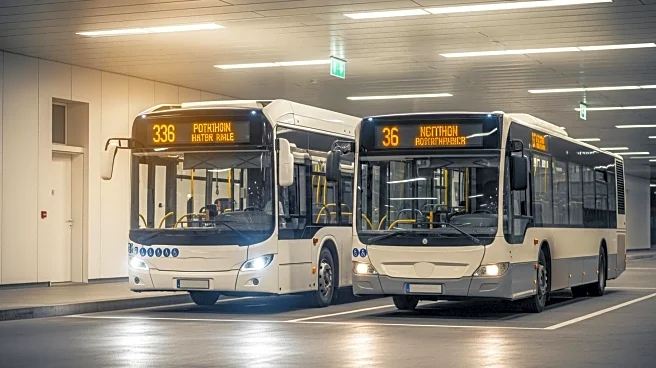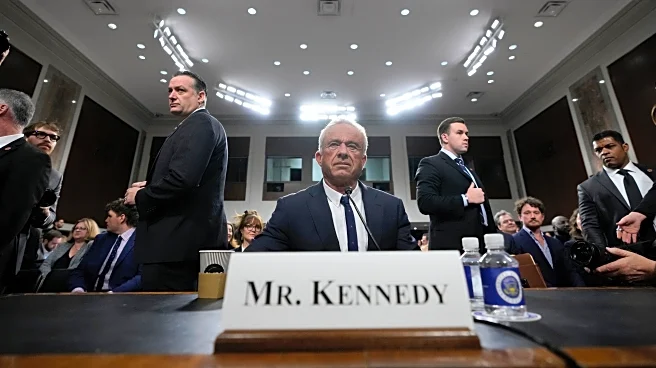What is the story about?
What's Happening?
The Regional Transportation District (RTD) has announced plans to invest $539 million in diesel buses, marking a significant shift from previous intentions to invest in electric vehicles. This decision comes as RTD aims to address immediate transportation needs and operational challenges. The move to diesel buses is seen as a detour from the growing trend towards sustainable and environmentally friendly transportation solutions.
Why It's Important?
RTD's decision to invest in diesel buses instead of electric vehicles has implications for environmental policy and sustainability efforts. Diesel buses, while potentially more cost-effective in the short term, contribute to higher emissions compared to electric alternatives. This decision may impact public perception and stakeholder confidence in RTD's commitment to reducing its carbon footprint. The investment highlights the ongoing debate between immediate operational needs and long-term environmental goals.
What's Next?
RTD's investment in diesel buses may prompt discussions among policymakers, environmental groups, and the public regarding the balance between cost efficiency and environmental responsibility. Stakeholders may advocate for a reevaluation of transportation strategies to align with broader sustainability objectives. The decision could also influence future funding and investment priorities within the transportation sector.
Beyond the Headlines
The shift towards diesel buses raises ethical and cultural questions about the prioritization of economic factors over environmental concerns. As cities and regions strive to meet climate goals, transportation decisions like RTD's may face scrutiny regarding their alignment with broader sustainability commitments. The long-term impact on public transportation systems could involve reassessing the role of diesel technology in achieving environmental targets.

















